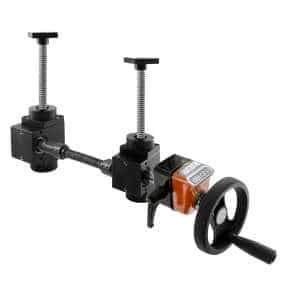The Potential Link Between Birth Control and Depression
News Jun 07, 2023

Birth control is widely used by women to prevent unwanted pregnancies and regulate menstrual cycles. However, many women report experiencing depression symptoms while taking birth control. This has raised concerns about the potential link between birth control and depression.
Several studies have suggested that there may indeed be a connection between the use of hormonal birth control and depression. Hormones play a crucial role in mental health, and the synthetic hormones found in birth control pills can disrupt the body’s natural hormone balance. This can lead to mood changes, depression, and other mental health issues.
However, it’s important to note that individual factors can also play a significant role in how women experience depression symptoms while taking birth control. Stress, lifestyle factors, pre-existing mental health conditions, and genetic predisposition can all contribute to the development of depression.
Physician guidance is crucial when it comes to choosing the right birth control method for each individual’s needs. Women should discuss their concerns about the potential link between birth control and depression with their healthcare provider to determine the best course of action.
Overall, while there may be a potential link between birth control and depression, it’s important to approach the topic with a nuanced perspective and consider individual factors. By making informed decisions about birth control choices and seeking proper medical guidance, women can ensure their mental and emotional well-being.
The Role of Hormones in Mental Health
Table of Contents
When it comes to women’s mental health, hormones are a crucial factor. Hormonal changes in the body can lead to a variety of emotional and mental health symptoms, including mood swings, anxiety, and depression. For women taking birth control, the hormonal changes they experience can have a significant impact on their emotional state.
Birth control pills contain synthetic hormones that work to prevent pregnancy. However, these hormones can also disrupt the body’s natural hormone balance, leading to mood changes and even depression. The type and amount of hormones in a particular birth control pill can also impact a woman’s mental health differently.
It’s essential to understand how hormonal changes while taking birth control can impact a woman’s emotional state. Women should talk to their healthcare provider if they notice any changes in their mood, anxiety level, or depression symptoms while taking birth control. They may need to switch to a different type of birth control or hormone therapy altogether based on their individual needs and symptoms.
The Impact of Synthetic Hormones
Synthetic hormones found in birth control pills can have a significant impact on a woman’s mental health. These hormones can disrupt the body’s natural balance, leading to changes in mood and increased risk of depression. When estrogen and progesterone levels fluctuate, the body can experience changes in the neurotransmitters responsible for regulating mood.
The synthetic hormones in birth control pills can also interfere with the production of serotonin, a neurotransmitter that plays a significant role in regulating mood. When serotonin levels are low, individuals can experience symptoms of depression, anxiety, and other mental health conditions. Disrupting serotonin production can also cause a range of physical symptoms, including headaches, fatigue, and changes in appetite.
While the potential link between synthetic hormones and mental health is still being studied, it’s essential for women to understand the impact these hormones can have on their emotional well-being. Healthcare providers can help women explore alternative birth control methods that don’t rely on synthetic hormones, allowing for a more personalized approach to contraception.
Alternatives to Synthetic Hormone Birth Control
For women who are concerned about the potential link between birth control and depression, there are non-hormonal birth control alternatives available. These options do not contain synthetic hormones, which can disrupt the body’s natural hormone balance and lead to mood changes and other mental health issues.
One non-hormonal option is the copper intrauterine device (IUD), which releases copper ions to prevent fertilization. Another option is barrier methods, such as condoms or diaphragms, which physically prevent sperm from reaching the egg. Natural family planning methods, such as tracking ovulation and abstaining from sex during fertile periods, are also available.
It’s important to note that non-hormonal methods may not be as effective as hormonal methods, and their success rates can vary based on individual factors. Women should discuss their options with their healthcare provider to determine the best birth control method for their individual needs and preferences.
The Importance of Individual Factors
There are several individual factors that can impact a woman’s mental health while taking birth control. These include previous mental health history, genetic predisposition, and personal lifestyle choices. For example, women with a history of depression may be more susceptible to experiencing symptoms while taking birth control.
- Previous mental health history: Women with a history of depression, anxiety, or other mental health issues may be at a higher risk of experiencing symptoms while taking birth control.
- Genetic predisposition: Some women may have a genetic predisposition to depression, making them more susceptible to developing symptoms while taking birth control.
- Personal lifestyle choices: Lifestyle factors, such as diet and exercise, can also impact a woman’s mental health while taking birth control. A healthy diet and regular exercise can help mitigate potential symptoms.
It’s important for women to consider their individual factors when choosing a birth control method. They should discuss these factors with their healthcare provider and choose a method that is best suited for their individual needs.
The Role of Physician Guidance
Women who are concerned about the potential link between birth control and depression should consult with a healthcare provider. Physician guidance is essential when it comes to choosing the right birth control method for individual needs. A healthcare provider can discuss the potential risks and benefits of different types of birth control and help women make informed decisions.
It’s also important for women to be honest with their healthcare provider about any depression symptoms they may be experiencing while on birth control. A healthcare provider can then monitor these symptoms and adjust the birth control method or prescribe additional treatment if necessary.
Additionally, women should be proactive in monitoring their own mental health while taking birth control. This includes tracking any changes in mood, anxiety levels, and other emotional symptoms. Women should also be aware of any potential side effects of their birth control method and report any concerns or issues to their healthcare provider.
Overall, physician guidance is crucial in navigating the potential link between birth control and depression. Women should work closely with their healthcare provider to find the best birth control method for their individual needs and to monitor their mental health while on the chosen method.
Conclusion
When it comes to birth control and depression, it’s important to remember that there is a potential link, but it’s important to approach the topic with nuance. It’s essential that women understand the potential causes for the connection, such as the role hormones play in mental health and the impact of synthetic hormones. Additionally, individual factors can play a significant role in how women may experience depression symptoms while taking birth control.
Fortunately, there are non-hormonal alternatives available for women concerned about the potential link between birth control and depression. However, it’s important to remember that guidance from a healthcare provider is crucial in finding the right birth control method for individual needs.
By taking the time to understand the potential risks and benefits of different birth control options and working with a physician to find the right method for one’s unique needs, women can make informed decisions about their reproductive health and overall well-being.



